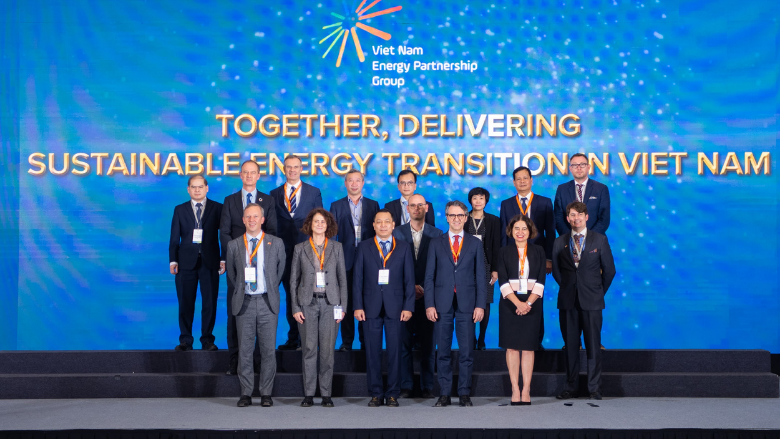Your Excellency Vice Minister of Industry and Trade Đang Hoang An,
Your Excellency Ambassador of the European Union Delegation to Vietnam Giorgio Aliberti,
Government officials, development partners, energy sector colleagues,
Ladies and Gentlemen,
Over the past decades, the energy sector has been a fundamental enabler of inclusive economic development in Vietnam. The World Bank, and the development partners representing the Vietnam Energy Partnership Group (VEPG), have provided strong support to the government-led efforts during this successful journey.
As Vietnam aims to become a high-income economy by 2045, especially in the context of the post-pandemic green recovery, the energy sector will be once again called upon to rise to the challenge of supporting this next phase of growth.
However, this time the challenge will be even more complex.
On one hand, there is a need to continue the rapid expansion of the sector for the country’s development needs, doubling the required system capacity within a decade; on the other hand, there is a need to better manage the climate impacts by significantly lowering the carbon footprint of the sector which already amounts to 65 percent of Vietnam’s emissions. Doing all this, while raising the needed financing for the energy transition and keeping the principles of equity and affordability in mind, will require proactive and continued reforms.
The energy transition challenge also brings new opportunities.
We welcome the visionary commitments that the government made during COP-26 to aim for net neutral emissions by 2050, and to phase out coal-based power by the 2040s. This sets clear endpoints for the energy sector. Now defining and implementing feasible pathways for achieving these goals should be the priority. The energy sector is well positioned to lead the green growth ambitions of the country - it can catalyze new investments, create new jobs, and improve the competitiveness of the economy.
There are some key issues for the government to consider.
First, evolution of sector policies and planning - the 8th Power Sector Development Plan - must keep clean energy transition at its core. This means selecting an appropriate energy mix, with due attention to phasing out the use of coal, managing the impacts of this transition to the people and business involved in the coal industry, and considering the appropriate role of transition fuels, such as natural gas.
Second, barriers for renewable energy deployment should be eliminated. We have witnessed the excellent success of the solar and wind industries under the feed-in-tariff regulations, but it has also created challenges related to uncontrolled expansion and has created unwanted curtailment and system instability. It is time now to accelerate the design and launch of competitive bidding programs. Organized and coordinated auction-based scheme for can propel the industry forward, particularly off-shore wind, a domestic clean energy resource which can be immensely beneficial for Vietnam.
Third, the power grid needs to be urgently expanded and modernized to keep pace with the growth of new clean energy technologies. In addition to power transfer capacity, the grid also needs to improve its flexibility with batteries and energy storage systems. Alleviating the grid bottlenecks is also an opportunity to mainstream automation and digitalization.
Fourth, consumer-side energy efficiency and demand moderation measures are immediate low-hanging fruits. These interventions not only reduce the need for vast supply-side expansion but are also highly cost-effective. Greater use of distributed renewable energy resources can complement what centralized power system can deliver.
Fifth, a systematic approach to mobilizing the large amounts of financing needed for the energy transition, which in our estimation will be about $12-14 billion, annually, is necessary. Timely and sector-specific investment climate reforms are needed for private sector participation which will drive majority of the needed investments. At the same time, enacting regulations which support public sector financing, including channeling of ODA resources and climate funds to the sector, where it complements and leverages the private sector, such as for power grid development, PPP projects, is essential.
Clean energy transition will require a wholistic economy-wide approach and no one-off solutions will be sufficient. I note that the technical working groups of the VEPG are already reflecting the various priority areas I have outlined. But it is important that the policy recommendations are converted into policy actions with renewed vigor.
When implemented, the envisioned transformation of Vietnam’s energy sector can be a boost to the development objectives as well as the climate ambitions of the country.
I would like to acknowledge MOIT’s leadership on this agenda, close collaboration amongst the development partners, and the excelled work of the VEPG Secretariat team.
I would like to reiterate the World Bank’s strong commitment to work with the government agencies and all development partners through the VEPG platform, with a common goal of creating a world-class energy sector in Vietnam.
Thank you.

